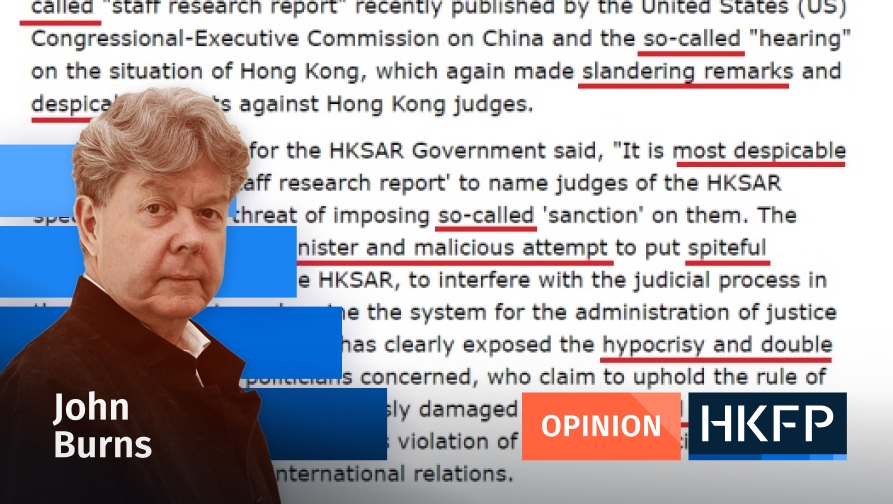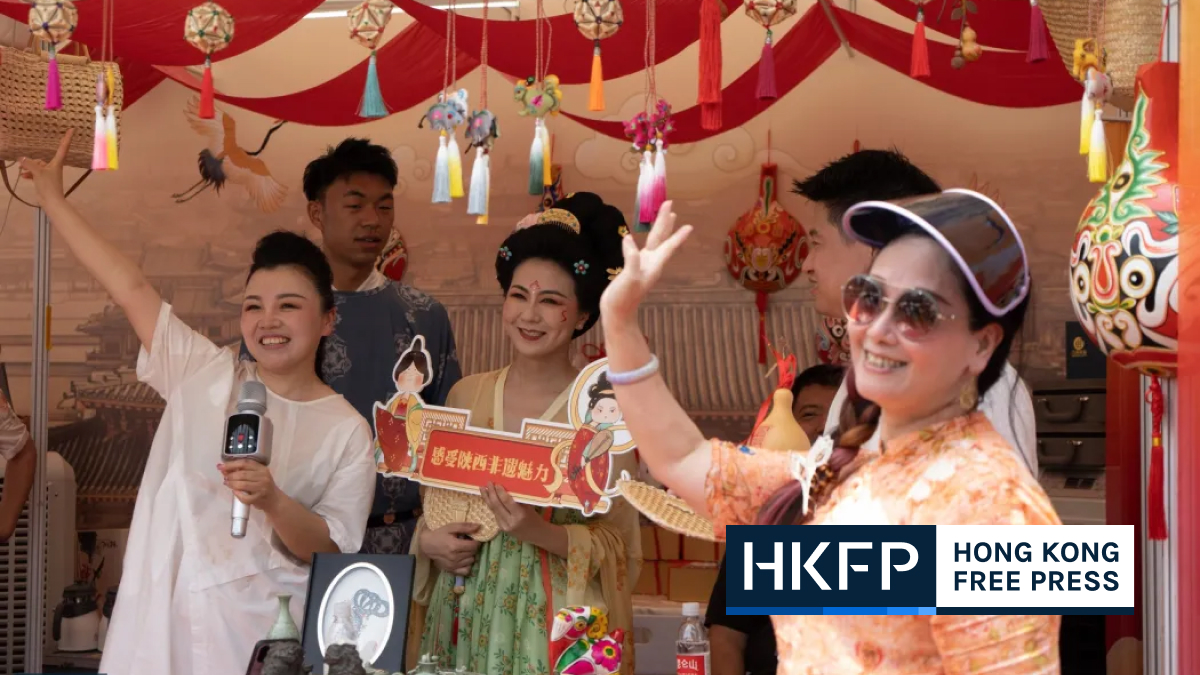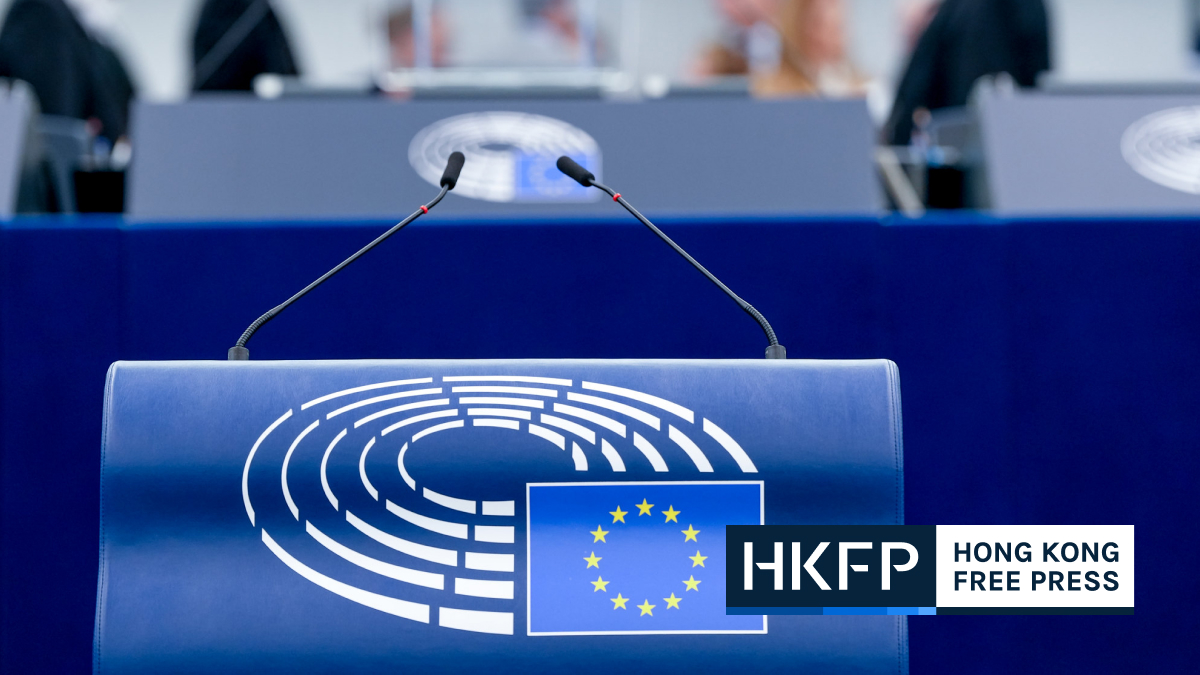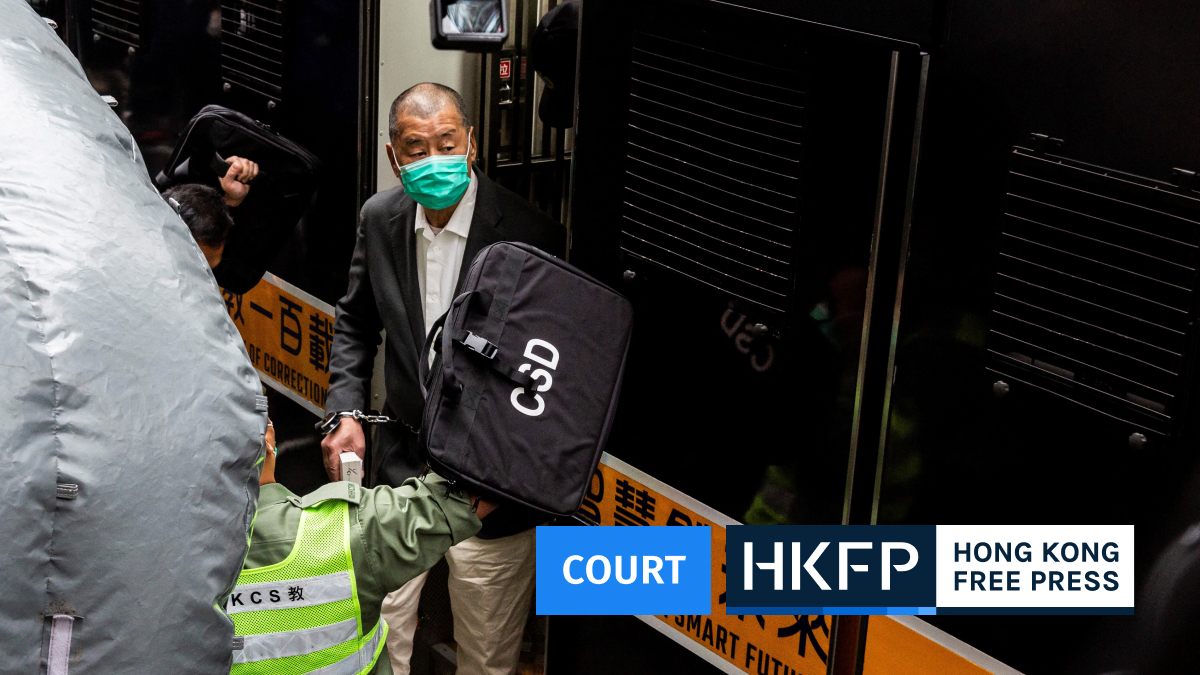A 26-year-old man who was arrested at Hong Kong’s airport in November has pleaded guilty to two counts of sedition linked to clothing he wore and a flag he was carrying that bore the protest slogan, “Liberate Hong Kong, revolution of our times.”
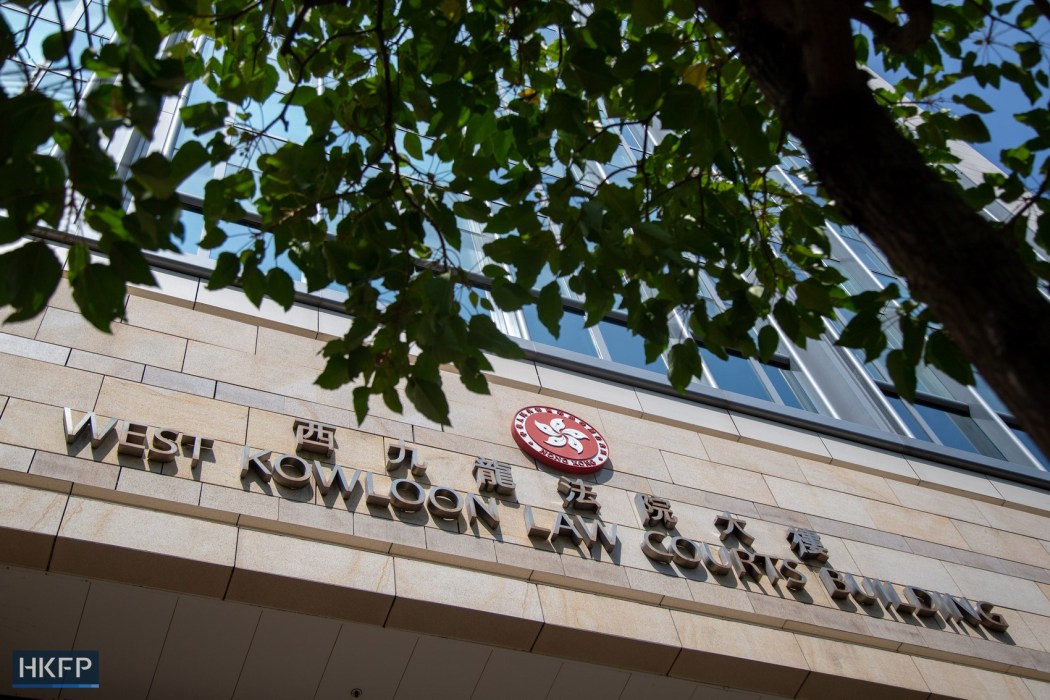
Chu Kai-poon entered his plea before hand-picked national security judge Victor So at West Kowloon Magistrates’ Courts on Thursday. Chu remained in custody awaiting sentencing next Wednesday.
Chu was arrested near a boarding gate at Hong Kong International Airport after being seen wearing a shirt with the protest slogan on it.
According to Ming Pao, the court heard on Thursday that it was an airport security guard who spotted Chu wearing a long-sleeve top with the phrase “Liberate Hong Kong, revolution of our times,” on it. During the city’s first national security trial in July 2021, the slogan was ruled capable of inciting secession, an offence under the Beijing-imposed security legislation.
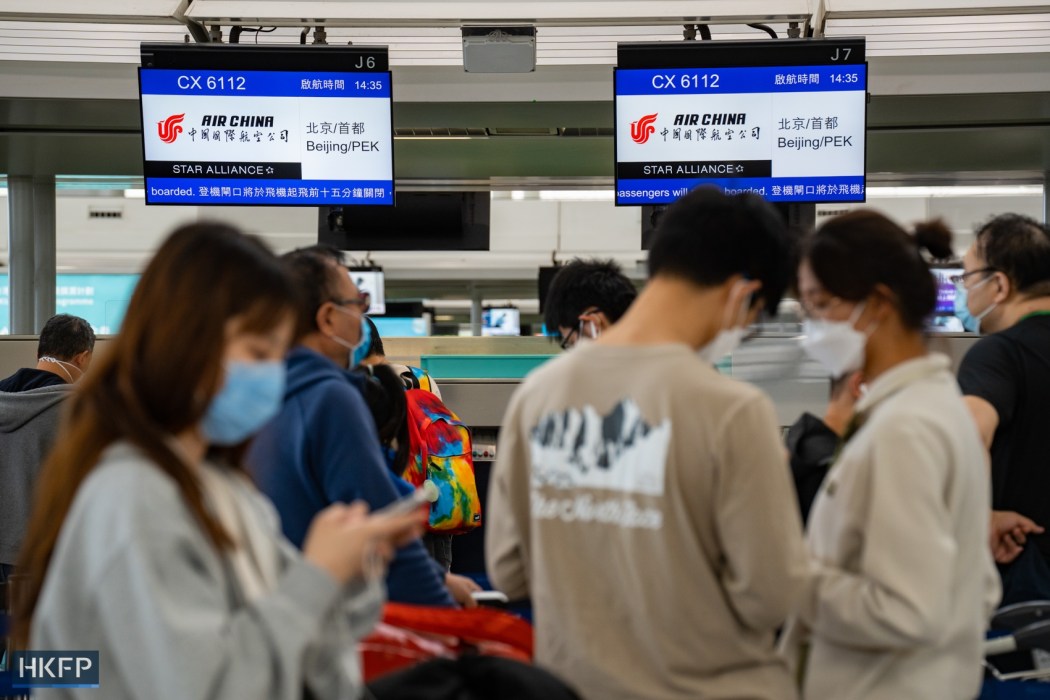
The airport security guard reported the case to the control centre, which then called the police.
After his arrest, Chu was also found to be wearing a short-sleeve T-shirt with the protest slogan on it, as well as a flag also bearing the phrase and a photo of him holding the flag.
A popular refrain during the 2019 pro-democracy protests, “Liberate Hong Kong, revolution of our times” was said by the government to be “pro-independence, secessionist and subversive,” on July 2, 2020, two days after the national security law came into force.
The prosecutor told the court on Thursday that during recorded interview with the defendant, Chu said he believed “liberating Hong Kong” meant transforming Hong Kong into an independent entity, reverting it back to British colonial rule, and freeing it from Chinese governance. The “revolution” was a means to achieve those goals, according to Chu, local media reported.
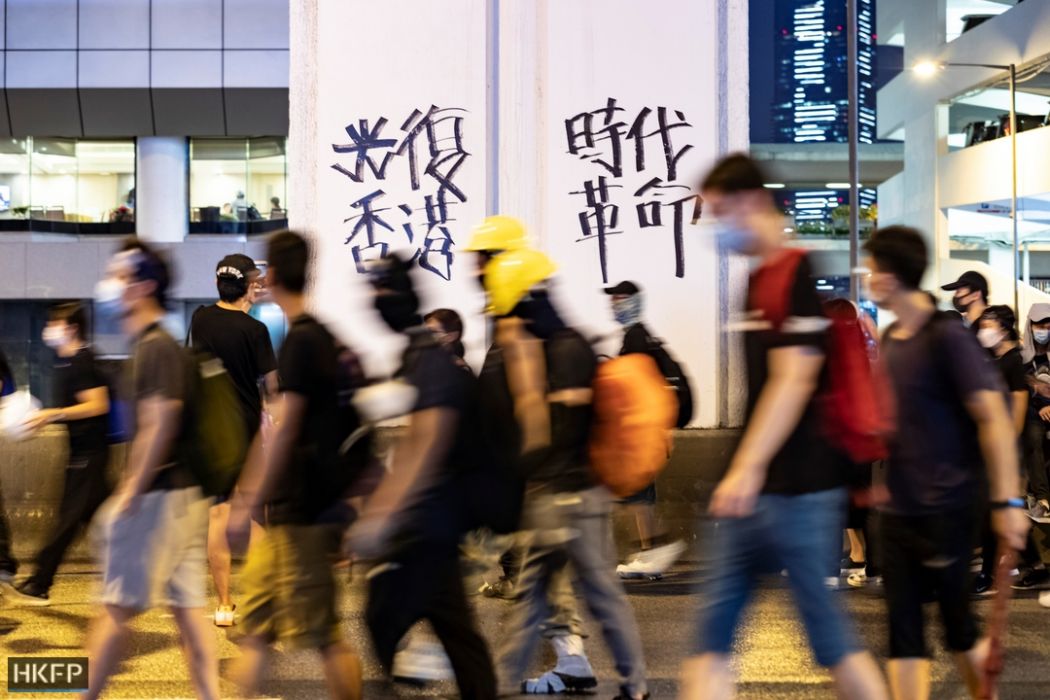
Two days after his arrest, Chu was charged with one count of “doing an act or acts with seditious intention” and another count of “possessing seditious publications” under the colonial-era sedition law. He was also charged over having another person’s identity card.
The defendant pleaded guilty to both counts of sedition, while the charge of “possession of another person’s identity card” was dropped.
Sedition is not covered by the Beijing-imposed national security law. However, authorities have reactivated the sedition law – last amended in the 1970s when Hong Kong was still a British colony – following the 2019 protests and unrests and assigned hand-picked judges to handle those cases.
Those convicted under the sedition law face a maximum penalty of two years in prison.
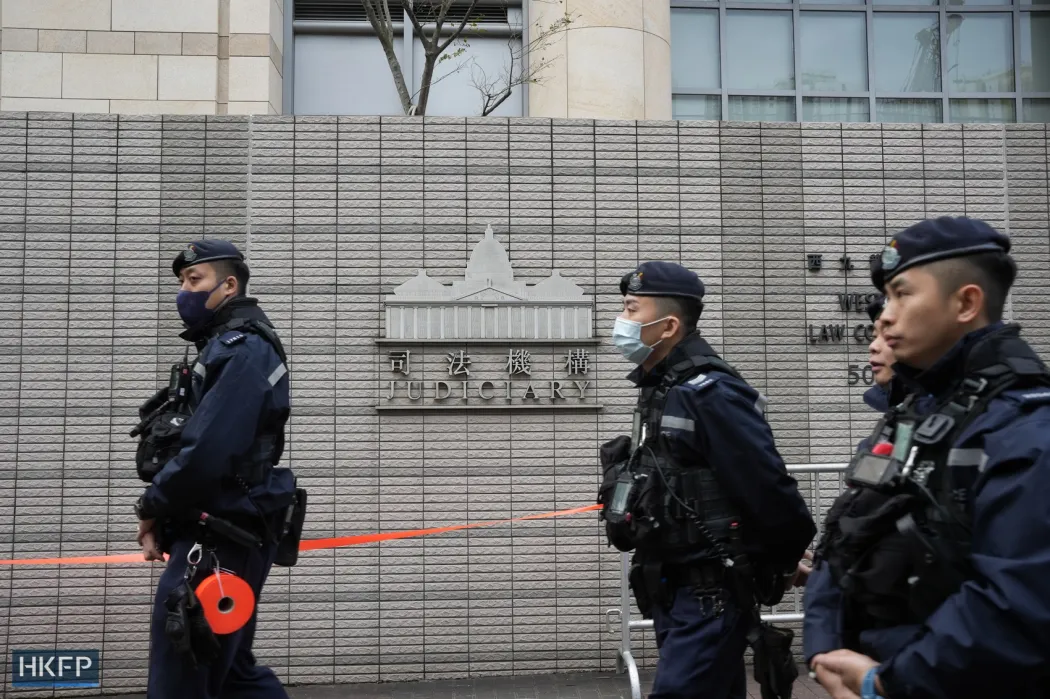
Protests erupted in June 2019 over a since-axed extradition bill. They escalated into sometimes violent displays of dissent against police behaviour, amid calls for democracy and anger over Beijing’s encroachment. Demonstrators demanded an independent probe into police conduct, amnesty for those arrested and a halt to the characterisation of protests as “riots.”
Following the unrest, Beijing inserted national security legislation directly into Hong Kong’s mini-constitution in June 2020. It criminalised subversion, secession, collusion with foreign forces and terrorist acts – broadly defined to include disruption to transport and other infrastructure.
The move gave police sweeping new powers and led to hundreds of arrests amid new legal precedents, while dozens of civil society groups disappeared. The authorities say it restored stability and peace to the city, rejecting criticism from trade partners, the UN and NGOs.
Support HKFP | Policies & Ethics | Error/typo? | Contact Us | Newsletter | Transparency & Annual Report | Apps
Help safeguard press freedom & keep HKFP free for all readers by supporting our team

latest national security stories




















